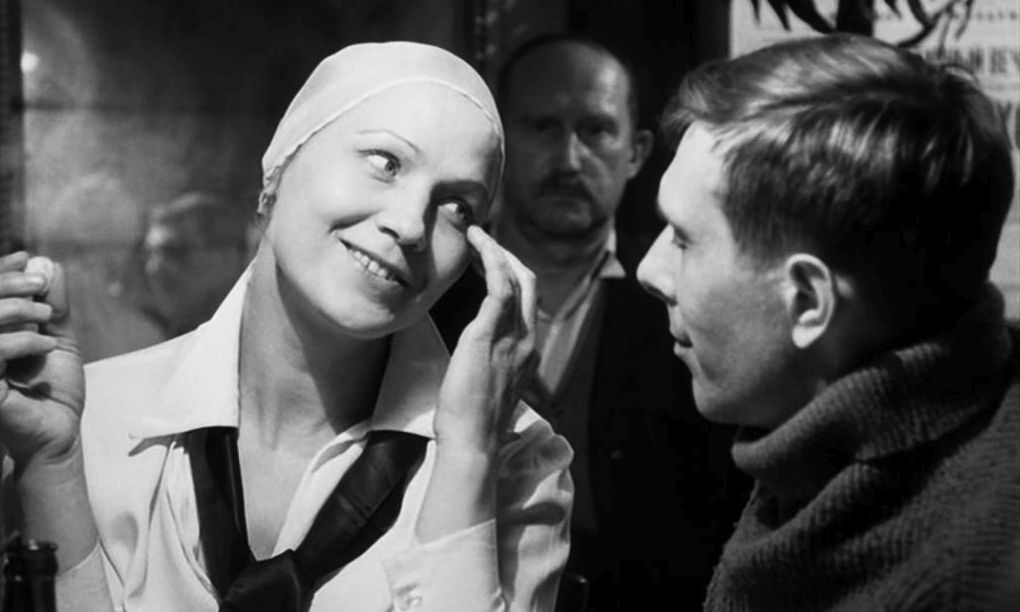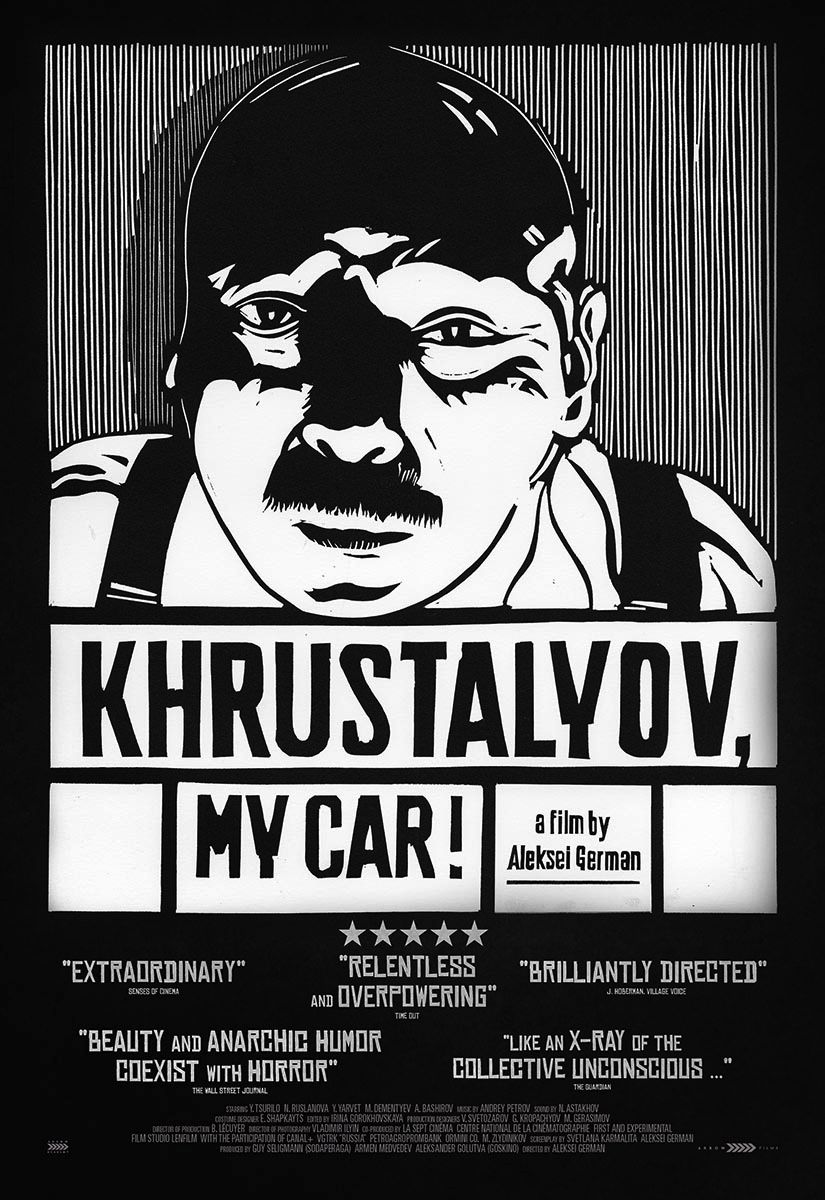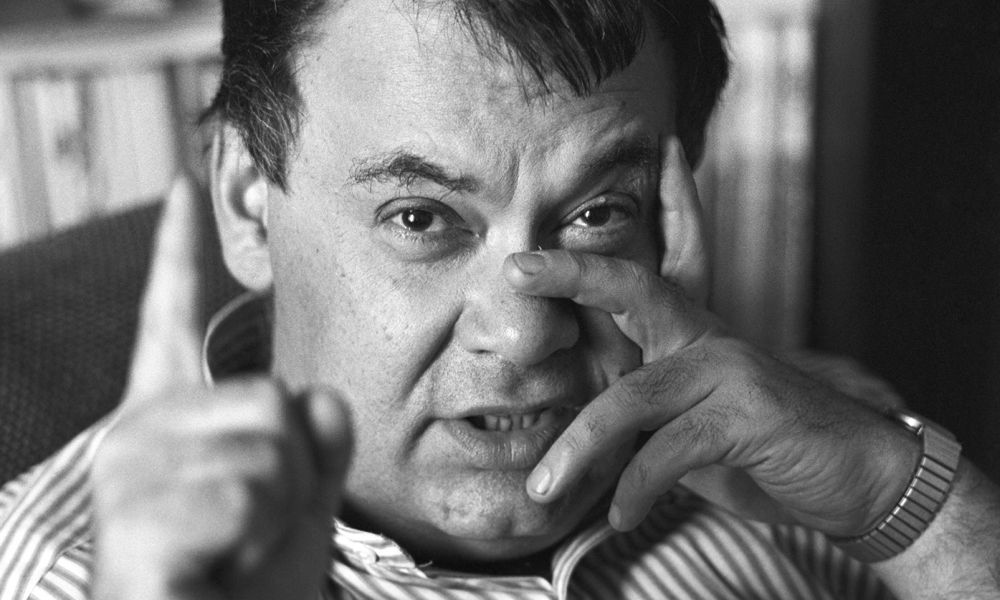"To many Russian critics, cinephiles, and viewers German is their national cinema’s foremost figure after Tarkovsky. Others insist that, in fact, he is more important and more original. Still others have never heard of him or confuse him with his namesake and son Alexei German Jr." - Anton Dolin (Film Comment, 2012)
Aleksei German
Director / Screenwriter
(1938-2013) Born July 20, Leningrad, Russian SFSR, USSR (now St. Petersburg, Russia)
Top 250 Directors
(1938-2013) Born July 20, Leningrad, Russian SFSR, USSR (now St. Petersburg, Russia)
Top 250 Directors
Key Production Country: USSR
Key Genres: Drama, War, War Drama, Historical Film, Black Comedy, Psychological Sci-Fi
Key Collaborators: Yuriy Tsurilo (Leading Actor), Nina Ruslanova (Leading Actress), Svetlana Karmalita (Screenwriter), Eduard Volodarskiy (Screenwriter), Vladimir Ilin (Cinematographer), Valeri Fedosov (Cinematographer), Irina Gorokhovskaya (Editor), Georgiy Kropachyov (Production Designer), Natalya Lvova (Character Actress)
Key Genres: Drama, War, War Drama, Historical Film, Black Comedy, Psychological Sci-Fi
Key Collaborators: Yuriy Tsurilo (Leading Actor), Nina Ruslanova (Leading Actress), Svetlana Karmalita (Screenwriter), Eduard Volodarskiy (Screenwriter), Vladimir Ilin (Cinematographer), Valeri Fedosov (Cinematographer), Irina Gorokhovskaya (Editor), Georgiy Kropachyov (Production Designer), Natalya Lvova (Character Actress)
"The son of writer Yuri German, he graduated in 1960 from the Leningrad State Institute of Theatre, Music and Cinema, where he had studied with Grigori Kozintsev. From 1964 he worked at Lenfilm, where in 1968 he co-directed The Seventh Companion with Grigori Aronov. During the next twenty years German made only three feature films, each of them beset by delays, censorship and shelving, but they have brought him a reputation as one of the key directors of the period." - Julian Graffy (Encyclopedia of European Cinema, 1995)
"Aleksei German was among the very last in a generation of film directors victimised by the Soviet Union's draconian attitude to the arts. As a result, since 1968 German had made only six films, one of them co-directed and one uncompleted [Hard to Be a God] at his death. Three of them were shelved for several years, and Khrustalyov, My Car! (1998), seven years in the making, was repeatedly bailed out by French money. German's reputation is based on only four films, all of them masterpieces… Despite his films having had limited distribution, German is now considered by many the equal of the better-known Andrei Tarkovsky. My Friend Ivan Lapshin, which German completed in 1982, was released in Russia in 1986 thanks to glasnost. It was subsequently voted the best Soviet film ever made in a national poll of film critics." - Ronald Bergan (The Guardian, 2013)

My Friend Ivan Lapshin (1985)
"Soviet cinema's New Wave began with Marlen Khutsiev's I Was 20 Years Old (1961) and dissipated around Brezhnev's death in 1982. The era launched the careers of three major filmmakers: Andrei Tarkovsky, Kira Muratova, and Aleksei German. Of the troika, Muratova has been the most productive, Tarkovsky, the most emblematic, and German, Teutonic last name aside, has been the most Russian." - Maxim Pozdorovkin (MUBI, 2012)
"German has a reputation as an unlucky director because of his run-ins with Soviet censorship, his fierce perfectionism and personal vision (the post-Soviet Khrustalyov was panned at Cannes), and the inaccessibility of his films… One of the most striking features of German’s films is their astonishing visual and sonic density, born of a hyperrealist drive to capture the micro-textures of Soviet life. Some of the inspiration for this “dirty” style surely came from the rich tapestries of grime offered by Andrei Tarkovsky’s Andrei Rublev (1966)." - John MacKay (Artforum, 2013)
"German has, rather like one of his own wizened, war-weary protagonists, soldiered forth, creating one of the most profoundly human and richly cinematic bodies of work in modern movies." - Film at Lincoln Center, 2012
Selected Filmography
{{row.titlelong}}
GF Greatest Films ranking (★ Top 1000 ● Top 2500)
21C 21st Century ranking (☆ Top 1000)
T TSPDT R Jonathan Rosenbaum S Martin Scorsese
21C 21st Century ranking (☆ Top 1000)
T TSPDT R Jonathan Rosenbaum S Martin Scorsese
Aleksei German / Fan Club
Anton Dolin, Andrey Zvyagintsev, Yuriy Bykov, Marina Stepanska, Glenn Kenny, Peter Labuza, Andrei Plakhov, John Powers, Alexei Popogrebsky, M.K. Raghavendra, Ari Aster, Michael Sicinski.
Anton Dolin, Andrey Zvyagintsev, Yuriy Bykov, Marina Stepanska, Glenn Kenny, Peter Labuza, Andrei Plakhov, John Powers, Alexei Popogrebsky, M.K. Raghavendra, Ari Aster, Michael Sicinski.
"Fan Club"
These film critics/filmmakers have, on multiple occasions, selected this director’s work within film ballots/lists that they have submitted.
These film critics/filmmakers have, on multiple occasions, selected this director’s work within film ballots/lists that they have submitted.


